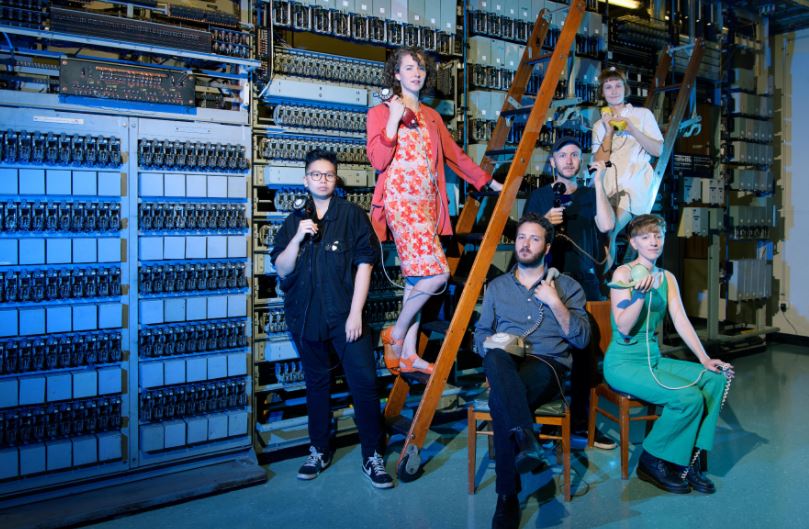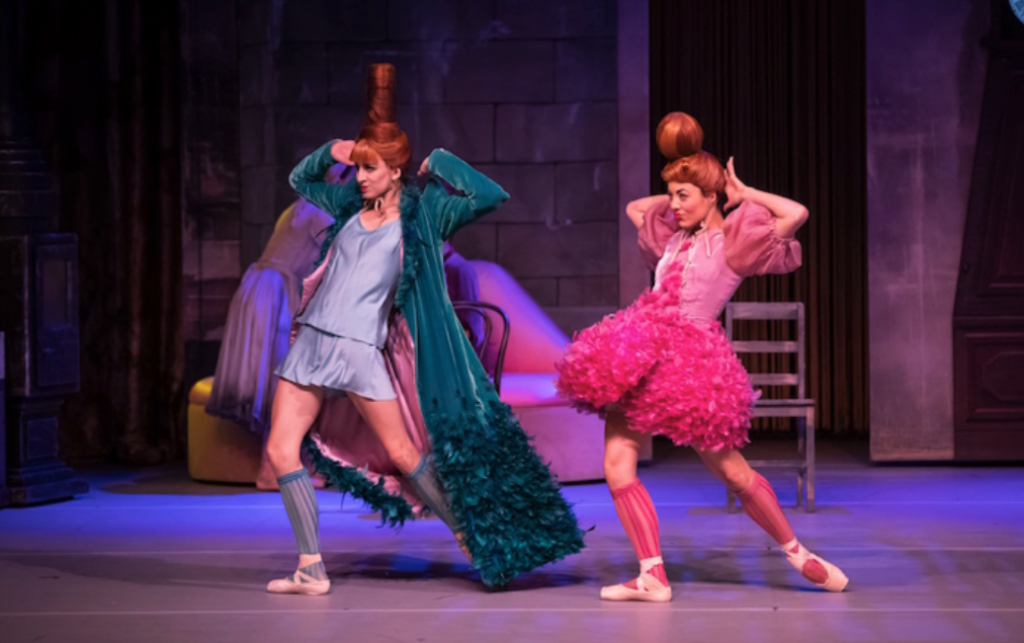
A new production, ‘The Human Voice’ is just a phone call away
Six of Australia’s most exciting young playwrights will join forces in a new play where every word of dialogue is spoken over the phone.
Following successes in their home cities of Sydney, Melbourne and Brisbane, Ang Collins (‘Blueberry Play’), Thomas De Angelis (‘Chamber Pot Opera’), Fiona Spitzkowsky (‘Unicorn D*ck’), Georgia Symons (‘Who Will Win?’), Jean Tong (‘Hungry Ghosts’) and Lewis Treston (‘Reagan Kelly’), six of Australia’s leading young playwrights, have come together to create , ‘The Human Voice’ for Melbourne’s Meat Market Stables.
These exciting young playwrights have collaborated on a sextuple bill (six short plays) all of which take place over the phone, exploring the ways this now ubiquitous technology influences our ability to communicate, converse and connect.
‘The Human Voice’ showcases humanity’s strangest phone-based quirks: connection to strangers when a wrong number is dialled, the awkwardness of phone-sex, and the imperfect possibilities of true connection via the phone. From the ritual of the family phone call to the uncertain menace of surveillance and privacy, ‘The Human Voice’ is a unique theatrical collaboration that will change the way you think about your phone.
Directed by Benjamin Sheen (‘Disparate Scenes for Millennial Dreams’) and presented by Periscope Productions, ‘The Human Voice’ also features the experimental choir Choral Edge, who will perform original music composed by the Father/Daughter team of David and Jess Keeffe, and with musical direction and additional composition from Juliana Kay.
The idea for the show came from Sheen’s fascination with a 1930 play by Jacques Cocteau, also called ‘The Human Voice’. He revelled in this new form of entertainment and exchange.
“The original was such a simple concept: one woman speaking on the phone,” said Sheen.
“But the real drama for me was how it revealed a new sort of language. We connect with people differently on the phone and it’s such an intimate space.”
The six playwrights have all written stories that centre around this device.
Ang Collins has written a play about the attempt to rekindle an old relationship via a totally unexpected phone call. The idea came to her during a train ride back to her hometown of Newcastle, where she began to think about the phone’s power to connect people intimately and immediately.
Playwright Thomas De Angelis has written about a young couple separated by distance hoping to use phone sex to save their ailing relationship, who spoke of his interest in exploring the communicative tools lack of body language.
“I was interested in what you can get away with via a phone call because you don’t have access to body language or eye contact, and therefore it can be much easier to lie,” De Angelis said.
“There was obviously comic potential in a play about phone sex, but I wanted to create a situation where phone sex is apparently essential but where neither character really wants to do it, they just think it’s what the other person wants.”
Fiona Spitzkowsky’s play sees the humble tin-can-phone making a comeback as a means of covert communication, using this tool as a way of examining surveillance and how ignorance can be manipulated.
The focus for Georgia Symons was the ritual of the weekly phone call between a daughter and her parents. Spread across sixty years, the play examines the changing dynamic between parent and child and stems from personal experience.
Jean Tong’s play considers the phone call’s emotional costs when used for providing care and support. Tong spoke about Lifeline and the bonds that form between these relationships.
“I was thinking a lot about Lifeline and how one can form an incredibly strong relationship with a completely unseen person,” Tong said.
“My play is about a character who frequently provides support to her friend over the phone, and over time we see the line between their friendship and support relationship blurred and become increasingly challenging to navigate.”
And lastly, but certainly not the least, Lewis Treston’s play is about the fictional hotline, “1800-RealTalk”, which allows callers to role-play a difficult conversation with a trained operator before facing the conversation in real life.
Opening Thursday, 4 March 2021, at Melbourne’s Meat Market Stables, ‘The Human Voice’ is an extraordinary collaboration between some of Australian theatre’s most exciting young creatives. Performances continue until 13 March 2021.
This project is supported by City of Melbourne Arts Grants Program. Additional support from the Seaborn, Broughton & Walford Foundation and the Robert Salzer Foundation
Press Release Supplied.






